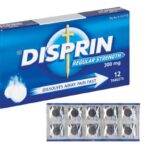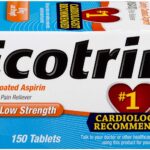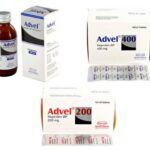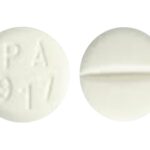Disprin Cardiocare: Uses, Dosage, Side Effects Warning
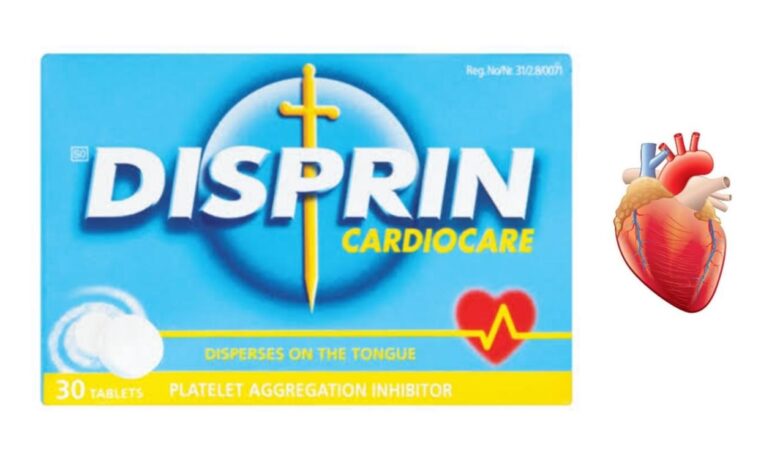
Disprin Cardiocare is a low-dose brand of aspirin-containing 100mg of acetylsalicylic acid, a nonsteroidal anti-inflammatory drug (NSAID) as the active ingredient. Taken daily, Disprin Cardiocare can lower the risk of cardiovascular events, such as a heart attack or stroke, in people with a high risk. Doctors may administer aspirin immediately after a heart attack to prevent further clots and heart tissue death.
How Disprin Cardiocare Works?
Disprin Cardiocare works by blocking a certain natural substance in your body to reduce pain and swelling. This effect reduces the risk of stroke and heart attack. The daily use of low-dose aspirin can lower the risk of cardiovascular events in some people — it is not safe for everyone. The Food and Drug Administration (FDA) recommends only using aspirin in this way under the supervision of a doctor.
In people with a high risk of cardiovascular events, low-dose aspirin can reduce the risk by preventing blood clots from forming.
A doctor may recommend daily low-dose aspirin-containing medication like Disprin Cardiocare for people who:
- have a heart or blood vessel disease
- have evidence of poor blood flow to the brain
- have high blood cholesterol
- have high blood pressure, or hypertension
- have diabetes
- smoke
However, for people without these issues, the risks of long-term aspirin use can outweigh the benefits.
The 2016 recommendations from the United States Preventive Services Task Force say that adults aged 50–59 may take aspirin daily to prevent colorectal cancer, as well as cardiovascular disease. However, this guidance only applies to adults in the age range who:
- have at least a 10% 10-year risk of cardiovascular disease
- do not have a high risk of bleeding
- have a life expectancy of at least 10 years
- are willing to take a daily low dose for at least 10 years
Doctors may administer aspirin immediately after a heart attack, stroke, or another cardiovascular event to prevent further clot formation and cardiac tissue death.
Aspirin can also be part of a treatment plan for people who have recently had:
• revascularization surgery, such as an angioplasty or coronary bypass surgery
• a mini-stroke, or transient ischemic attack
• an ischemic stroke, which is caused by a blood clot
How should I take Disprin Cardiocare?
Use the lowest effective dose for the shortest possible duration of treatment.
Adults: 100 to 300 mg (1 to 3 tablets) to be taken every day, preferably at the same time each day.
Disprin Cardiocare can be dispersed on the tongue without water.
What happens if I miss a dose?
If you are on a schedule, use the missed dose as soon as you remember. Skip the missed dose if it is almost time for your next scheduled dose. Do not use extra Disprin Cardiocare to make up the missed dose.
What happens if I overdose?
Seek emergency medical attention or call the Poison Help line at 1-800-222-1222. Symptoms of overdose include dizziness (vertigo), tinnitus, sweating, nausea, vomiting, fluid and electrolyte losses (dehydration), deafness, warm extremities with bounding pulses, increased respiratory rate, ketosis, and hyperventilation.
In cases of overdosage, consult a doctor immediately. Give activated charcoal if an adult presents within one hour of ingestion of more than 250 mg/ kg.
What are the side effects of Disprin Cardiocare?
Blood and lymphatic system disorders:
- Hypothrombinaemia
- Thrombocytopenia
- Aplastic anaemia
- Agranulocytosis
- pancytopenia.
Immune system disorders:
- Various skin eruptions
- Pyrexia
- Uticaria
- Pruritus
- Angioedema.
Metabolism and nutrition disorders:
- Sodium retention and fluid retention.
Nervous system disorders:
- Meningitis
- Headache
- Dizziness
Cardiac disorders:
- Hypertension
- Cardiac failure
- Oedema
Vascular disorders:
- Hypertension
Respiratory, thoracic, and mediastinal disorders:
Respiratory tract reactivity
- Bronchospasm
- Asthma
- Dyspnoea
- Rhinitis.
Gastrointestinal disorders:
Common: gastrointestinal disturbances including nausea, vomiting, and dyspepsia.
- Gastrointestinal haemorrhage melaena
- Haematemesis
- Gastritis
- Diarrhoea
- Constipation
- Flatulence
- Peptic ulcer and mouth ulceration (ulcerative stomatitis).
Hepatobiliary disorders:
- Hepatotoxicity
Skin and subcutaneous tissue disorders:
- Stevens-Johnson syndrome
- Toxic epidermal necrolysis and rash.
Renal and urinary disorders:
- Increased blood uric acid.
What to avoid while taking Disprin Cardiocare
Avoid drinking alcohol while you are taking Disprin Cardiocare. Heavy drinking can increase your risk of stomach bleeding.
If you are taking this medicine to prevent heart attack or stroke, avoid also taking ibuprofen (Advil, Motrin). Ibuprofen may make this medicine less effective in protecting your heart and blood vessels. If you must use both medications, ask your doctor how far apart your doses should be.
Ask a doctor or pharmacist before using any cold, allergy, or pain medication. Many medicines available over the counter contain aspirin or an NSAID. Taking certain products together can cause you to get too much of this type of medication. Check the label to see if a medicine contains aspirin, ibuprofen, ketoprofen, naproxen, or an NSAID.
What other drugs will affect Disprin Cardiocare?
Ask your doctor before using Disprin Cardiocare if you take an antidepressant such as citalopram, escitalopram, fluoxetine (Prozac), fluvoxamine, paroxetine, sertraline (Zoloft), trazodone, or vilazodone. Taking any of these medicines with an NSAID may cause you to bruise or bleed easily.
Ask a doctor or pharmacist if it is safe for you to use this medicine if you are also using any of the following drugs:
• a blood thinner (warfarin, Coumadin, Jantoven), or other medication used to prevent blood clots; or
• other salicylates such as Nuprin Backache Caplet, Kaopectate, KneeRelief, Pamprin Cramp Formula, Pepto-Bismol, Tricosal, Trilisate, and others.
This list is not complete. Other drugs may interact with aspirin, including prescription and over-the-counter medicines, vitamins, and herbal products. Not all possible interactions are listed in this medication guide.
You can also find useful information on How to take Disprin 300mg

